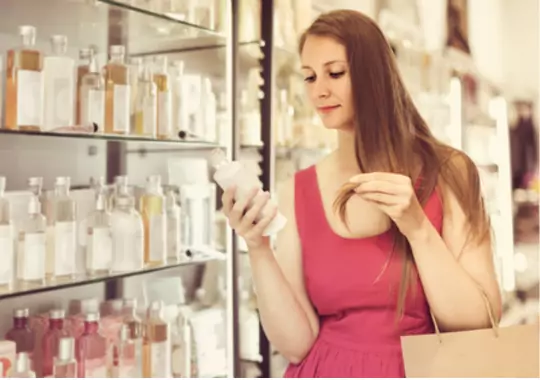Perfume, a magical elixir that weaves its aromatic spell, has captivated humanity for centuries. The allure of fragrance stretches back through time, leaving a scented trail that intertwines with culture, history, and personal expression. From ancient civilizations to the modern era, the history of perfume is a testament to humanity's unyielding desire for beauty and sensory pleasure.
As Amazon affiliates we may earn a commission if you purchase a product at no cost to you.
Exploring the Fascination with Fragrance Throughout History
Since time immemorial, humans have been enchanted by the power of scent. The art of perfumery dates back to the dawn of civilization, with ancient civilizations recognizing and harnessing the potential of natural aromatic substances. In ancient Egypt, fragrant oils and resins were used in religious ceremonies, and even in the embalming process, as a tribute to the gods and a means to preserve the departed.
Moving forward, we encounter the rich tapestry of fragrance in Mesopotamia, where the creation of perfumed oils flourished. The alluring scents were not only used for personal adornment but also held medicinal properties. Fragrance became a symbol of status and beauty, weaving its way into the fabric of daily life.
Ancient China, too, had its aromatic traditions. The use of incense and herbal concoctions became an integral part of Chinese culture, believed to have therapeutic and spiritual qualities. Perfumes were worn to enhance well-being and create harmony between the body and the mind.
A Glimpse into the The History of Perfume
Perfume is not merely a luxurious accessory; it holds deep cultural significance. Throughout history, fragrances have been associated with wealth, power, and even spirituality. In ancient Rome, perfumes were prized possessions and status symbols. The elite adorned themselves with the finest scents to exude opulence and sophistication.
In the Middle Ages, perfume experienced a revival, intertwined with the art of alchemy. Perfumers' guilds emerged, and trade routes expanded, bringing an array of exotic ingredients from far-flung lands. Fragrance became a commodity, and perfumers were revered for their alchemical skills in blending scents.
During the Renaissance, perfume transcended mere personal adornment and became an expression of artistic creativity. Perfume bottles were crafted as delicate works of art, adorned with intricate designs and precious gemstones. Perfumery became a flourishing industry, with renowned perfumers like Catherine de Medici and Giovanni Maria Farina leaving an indelible mark on the olfactory landscape.
Perfume continues to be an embodiment of culture, reflecting societal norms and individual tastes. It has the power to evoke memories, create a mood, and convey emotions. From the romantic floral fragrances of the Victorian era to the modern, bold scents of the 21st century, perfume remains an essential part of our personal identities and a reflection of our ever-evolving society.
As we embark on this fragrant journey through time, we will delve deeper into the scented tapestry that has shaped the history of perfume. From ancient aromatics to the modern innovations of personalized fragrances, the story of perfume is one that continues to unfold, captivating our senses and weaving its fragrant magic throughout the ages.
Ancient Aromatics: Perfume in Early Civilizations
Perfume, with its captivating scents, has a rich history that traces back to the earliest civilizations. In this chapter, we will explore the origins of perfumery in ancient Egypt, the birthplace of perfumed oils in Mesopotamia, and the ancient Chinese practices that incorporated perfume for medicinal purposes.
The Earliest Records of Perfumery in Ancient Egypt
Ancient Egypt holds the distinction of being one of the earliest civilizations to have a profound relationship with perfumery. Fragrance played a significant role in Egyptian religious and cultural practices. The Egyptians believed that perfume possessed sacred qualities and was closely associated with the gods.
The process of creating perfume in ancient Egypt was meticulous and precise. Fragrant oils were extracted from a variety of sources, including flowers, herbs, and resins. Aromatic substances such as myrrh, frankincense, and rose were prized for their rich scents. These oils were often blended with other ingredients to create unique perfume formulations.
Perfume held great importance in both daily life and death rituals. Egyptians used perfumed oils for personal grooming, to scent their homes, and to anoint the deceased during the embalming process. Fragrance was seen as a way to communicate with the divine and to elevate the senses to a higher spiritual realm.
Fragrance in Mesopotamia: The Birthplace of Perfumed Oils
Mesopotamia, the cradle of civilization, also played a pivotal role in the development of perfumery. The ancient Mesopotamians were skilled in extracting aromatic oils from plants and using them for various purposes. They believed in the healing properties of fragrances and utilized them in medicinal practices.
The Mesopotamians cultivated gardens filled with aromatic plants, such as myrtle and cypress, to harvest their precious oils. These oils were then used as perfumes, offerings in religious ceremonies, and even as ingredients in cosmetics. Perfumed oils were highly valued commodities and were traded extensively throughout the region.
The art of perfumery in Mesopotamia was closely tied to the concept of purification and ritualistic practices. Perfumed oils were believed to cleanse and purify the body, mind, and spirit. They were also used in religious ceremonies to honor the gods and to seek their favor.
Perfume in Ancient China and Its Medicinal Uses
In ancient China, perfume held a unique place in society, as it was not only used for its aromatic qualities but also for its medicinal properties. The Chinese recognized the therapeutic benefits of various aromatic substances and incorporated them into their traditional medicine.
Perfume, or "xiang," as it was known in ancient China, was derived from natural sources such as flowers, roots, and spices. These fragrant materials were carefully combined to create pleasing scents that were believed to have a harmonizing effect on the body and mind.
Chinese medicine embraced the use of perfume as a means of restoring balance and promoting well-being. Different scents were associated with specific therapeutic properties, and they were utilized in the treatment of various ailments. For example, lavender was used to calm the mind and alleviate anxiety, while citrus scents were believed to invigorate and uplift the spirit.
Perfume also had a cultural significance in ancient China. It was used to adorn the body and enhance personal beauty. The art of perfumery became highly refined, with skilled artisans crafting delicate fragrance compositions that appealed to the senses.

Perfume's Journey through Time: From the Middle Ages to the Renaissance
In this chapter, we will explore the captivating journey of Perfume from the Middle Ages to the Renaissance. This period witnessed the rise of perfumers' guilds and trade routes, the development of distillation techniques for extracting scents, and perfume's association with religious ceremonies and royalty.
The Rise of Perfumers' Guilds and Trade Routes
During the Middle Ages, the art of perfumery began to flourish across Europe. Perfumers' guilds emerged, providing a structured platform for perfumers to share their knowledge and ensure the quality of their craft. These guilds established standards for perfume production and trade, safeguarding the reputation of the industry.
Perfume trade routes expanded during this time, enabling the exchange of exotic and precious aromatic materials from distant lands. Merchants traveled along the Silk Road, the Mediterranean Sea, and other trade routes, bringing back rare and sought-after ingredients like spices, resins, and precious woods. These valuable resources enriched the perfumer's palette, allowing for the creation of unique and luxurious fragrances.
The Development of Distillation Techniques for Extracting Scents
One of the most significant advancements in perfumery during this era was the development of distillation techniques. Previously, perfumers relied on methods such as enfleurage (extracting fragrance through fats) and maceration (soaking botanical materials in oils or alcohol). However, distillation revolutionized the process by allowing for the extraction of essential oils from plants more efficiently.
The discovery and refinement of distillation techniques gave perfumers access to a wider range of scents and expanded their creative possibilities. With the advent of stills and distillation apparatus, fragrant essences could be extracted from flowers, herbs, and other aromatic substances. This breakthrough led to the creation of more concentrated and long-lasting perfumes.
Perfume's Association with Religious Ceremonies and Royalty
Perfume's allure was not limited to personal adornment during this period; it also held great significance in religious ceremonies and among royalty. Perfumes were used in religious rituals, both as offerings to deities and as a means to purify and sanctify sacred spaces. The use of incense and scented oils in churches and temples created an ambiance of reverence and spirituality.
Perfume became closely associated with royalty and the upper classes. Kings, queens, and nobles sought out luxurious and exclusive fragrances to enhance their presence and signify their status. Perfume bottles were crafted with exquisite designs and adorned with precious gemstones, becoming cherished symbols of opulence and refinement.
The Renaissance period saw a blossoming of the perfume industry, particularly in regions like Italy and France. Influential figures such as Catherine de Medici and Queen Elizabeth I of England contributed to the popularity of perfumes by embracing and promoting the art of fragrance. Perfumers began creating scents specifically tailored for these influential patrons, further fueling the demand for exquisite perfumes.

The Perfume Renaissance: Fragrance Flourishes in the 17th and 18th Centuries
The 17th and 18th centuries marked a significant period of growth and innovation in the world of perfume. Known as the Perfume Renaissance, this era witnessed the influence of the French court, the birth of modern perfumery, the advent of Eau de Cologne, and the contributions of notable perfumers.
The Influence of the French Court and the Birth of Modern Perfumery
The French court, particularly during the reign of Louis XIV, played a pivotal role in shaping the perfume industry. Perfume became an essential accessory, and the courtiers engaged in a scented competition, each vying to create and wear the most exquisite fragrances. This led to the establishment of perfumers' workshops and the birth of modern perfumery as we know it today.
During this period, perfumers began to explore new methods of scent extraction, including enfleurage and solvent extraction. These techniques allowed for a wider range of raw materials to be used in perfumery, enabling the creation of more complex and sophisticated fragrances. Perfumers meticulously blended various aromatic ingredients to achieve unique compositions that captured the essence of luxury and elegance.
The Advent of Eau de Cologne and Its Widespread Popularity
One of the most significant developments of the Perfume Renaissance was the creation of Eau de Cologne. It was in the 18th century that Italian perfumer Giovanni Maria Farina crafted a refreshing and invigorating fragrance known as "Eau de Cologne" or "water of Cologne." This fragrance combined citrus notes with herbs and spices, creating a light and revitalizing scent.
Eau de Cologne quickly gained popularity, not only for its delightful aroma but also for its perceived health benefits. It was believed to have refreshing and uplifting properties, making it a favored scent for personal use. The popularity of Eau de Cologne spread across Europe, becoming a staple fragrance for both men and women.
Notable Perfumers and Their Contributions to the Industry
The Perfume Renaissance saw the emergence of several notable perfumers who left a lasting impact on the industry. One such perfumer was Jean-Marie Farina, who inherited Giovanni Maria Farina's formula for Eau de Cologne and established his own perfume house. His creations continued to captivate audiences, and his perfumes became synonymous with quality and elegance.
Another influential figure was Pierre-François-Pascal Guerlain, who founded the House of Guerlain in the early 19th century. Guerlain's innovative approach to perfume-making and his use of precious and rare ingredients garnered him a reputation as a pioneer in the industry. His creations, such as Jicky and Shalimar, became iconic and set the stage for future generations of perfumers.
Recommended Article

Frequently Asked Questions (FAQs)
What is the history of perfume?
The history of perfume dates back to ancient civilizations, with early records found in Egypt, Mesopotamia, and China. Perfume has played a significant role in cultural and religious practices throughout history.
How has the perfume industry evolved in the modern era?
In the modern era, the perfume industry has embraced e-commerce, personalized fragrances, and sustainable practices. Online perfume shopping has become popular, and AI technology is used to create customized scents. Perfumery is also focusing on eco-friendly initiatives.
What can we expect for the future of perfume?
The future of perfume holds possibilities like scent integration in virtual reality, personalized AI-generated fragrances, and sustainable innovations. The industry will continue to evolve, combining artistry, technology, and sustainability to create unique and captivating fragrances.
Conclusion
The history of perfume is a captivating journey that spans across ancient civilizations to the modern era. From the fascination with fragrance in early civilizations to the flourishing of perfumery in the Victorian era, perfume has left an indelible mark on human culture and society.










